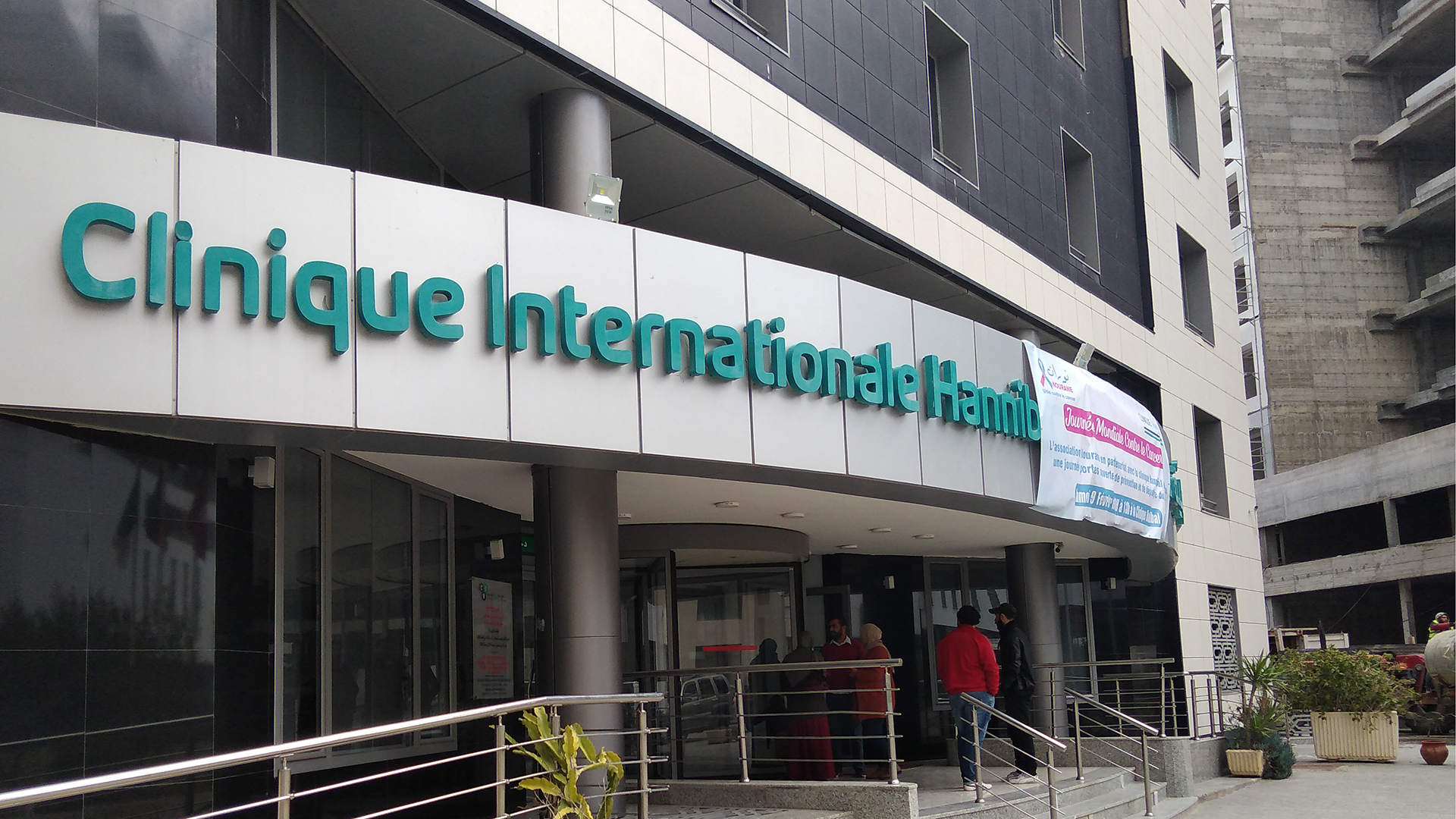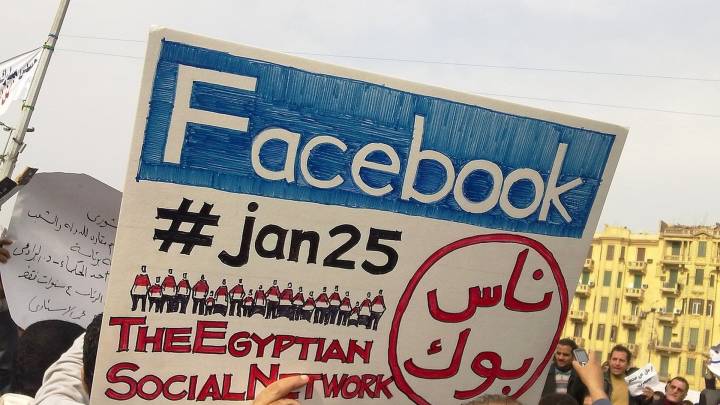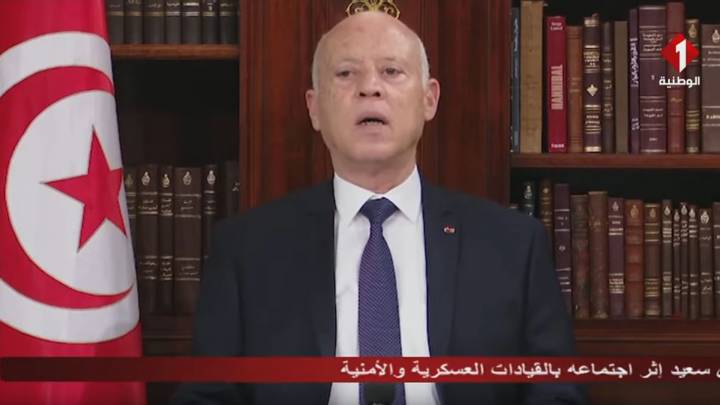With crumbling healthcare infrastructure in Libya, many people travel abroad for treatment. Tunisia is the nearest destination, but a weak Libyan economy and slow payments by the Ministry of Health have affected the ability of Libyans to get care.
His arms bandaged, his legs tucked under the bed sheet in his room at Hannibal International Clinic in the upscale Tunis suburb of Berges du Lac, Nabil Gamal Naji Muftah from Benghazi is one of many Libyans who have travelled to Tunisia for medical treatment.
Five years ago he was sitting next to his older brother as they drove home fast one night, when they spotted a truck travelling towards them. Though the truck braked quickly, likely averting a greater tragedy, it was too late to avoid a collision.
Showing pictures on his smartphone of the almost completely-smashed car, he remembers people telling him that nobody could have survived such an accident. Though his brother was only lightly injured, Muftah sustained serious injuries and lost consciousness. He woke up four days later in a hospital in Benghazi to find out that his neck – the cervical section of his spinal cord, directly below his skull – was partly broken, and his legs and arms paralysed. He was hospitalised for nearly a month, during which doctors carried out surgery to treat his spinal injury and his right arm.
“The doctor there told me I didn’t need more surgery, but just some therapy and I would be fine. I didn’t believe him,” he recounts. The same doctor referred him to a clinic specialising in the rehabilitation of patients with spinal cord injuries in the Czech Republic. The young Libyan travelled in his wheelchair and stayed there for 15 months, and then went to another specialised rehabilitation clinic in Poland for seven months, before returning home in July 2016, when his money ran out.
Back in Libya, he refused to be hospitalised because of fears over poor conditions and bacterial contamination in hospitals. “If you go to any Libyan public hospital, you will get a bacterial infection on the second day,” he comments – he was a third-year medical student at the time of his accident. “Medical staff are inadequate. If you’re lucky, you might get a good doctor.”
He stayed at home without doctor visits and no exercise, taking antispasmodics. Nader, his other brother, looked after him day and night. He soon realised his health was worsening, with pain all over his body. A year and a half later, dead skin on his legs and feet was causing a bad odour. He rushed to Tunis to do something about his health. “In Libya, we have free public hospitals but we don’t have good healthcare. We have to turn to Tunisia to be treated properly,” he explains.
Since July 2018, his bacterial skin infection has been treated topically, and he has undergone operations for the injuries to his spinal cord and upper and lower limbs. His arms and hands are now slowly getting better, though below his waist all he can feel are cramps in his legs and feet. The state of his spine has improved. Nader, who has been assisting his brother daily since he was admitted at the Tunisian clinic, shows X-rays of his cervical spine and upper limbs after surgery.
“There’s good equipment and quality service here, doctors and nurses make you feel at ease,” Muftah says. “The first day I came, saw the clinic and met with the staff, I made up my mind on being treated here.”
Muftah is part of a wave of Libyans who have travelled to Tunisia for medical care since the revolution in 2011. Sitting in his office, Dr Ghazi Jerbi, a reputed oncologist and the medical director of Hannibal International Clinic, reflects on the significance of Libyan patients for the healthcare sector.
“Tunisia has always been a destination for Libyan patients. At our clinic, we receive a lot of patients of different nationalities, especially Libyans, along with Algerians,” he says. He previously worked as a surgeon at Tawfik Polyclinic, and there too Libyans made up a crucial part of the clientele. “Libyans often don’t have a choice, given the damaged state of Libyan healthcare. They come here and find a better level of care,” he adds.
Struggling with a severely underdeveloped healthcare system, for many years Libyans have been escaping for services in Tunisia – within short travel distance, sharing cultural similarities and a common language. Official Tunisian statistics show that even before the 2011 revolution, more than 1.5 million Libyans a year used to travel to Tunisia for tourism or medical treatment.
As the oil-rich country descended into chaos after the fall of long-time dictator Muammar Gaddafi, Libyan medical centres experienced a massive influx of injured patients which they could not adequately accommodate. As a result, wounded Libyans increasingly flocked to Tunisia for treatment, and Tunisian private clinics mushroomed to serve the inflow of Libyan patients.
In the revolution’s aftermath, Hannibal Clinic took as many as ten Libyan wounded per day, according to Dr Jerbi. Because patients outnumbered available beds, two were put in each room to meet demand.
From 2011 to 2014, around 50% of the capacity of private sector Tunisian health facilities catered solely to Libyans, suggests Dr Jerbi. He estimates that the occupancy rate has now collapsed to “around 20% or less”.
Part of the reason for the big drop-off in numbers is economic – the number of Libyan patients has declined significantly since 2015 as the turmoil in Libya severely weakened the purchasing power of the average Libyan amid economic hardship, dramatic devaluation of the Libyan dinar, rampant inflation and a severe liquidity crisis. Libyan households have lost almost 80% of their purchasing power over the last four years, according to the World Bank.
Unlike earlier, many Libyans today travel to get their medical care and then leave right afterwards, instead of staying longer and budgeting for other medical necessities while hospitalised. Family members accompanying Libyans have also decreased in number, as they have to cover accommodation and living costs over their stay in Tunisia, sometimes for long periods if relatives are hospitalised for chronic illnesses.
Slow payers
Another patient at Hannibal International is Mohamed Mahmoud Salah, 23, a customs officer from the town of Brega, near Benghazi. He arrived at the clinic in late January after being shot in the leg following a fight with a man after their cars collided, a man who Salah says is a well-known criminal wanted by the police. He was rushed to the nearest hospital in Ajdabiya, about 60 kilometres from Brega. He was told that the two bullets had passed through his leg, leaving only a wound. He received basic treatment and his leg was put in plaster.
“It was a big public hospital but in bad condition. It was short of equipment and medical supplies. My family had to buy medication from the pharmacy outside for me. I even got a bacterial infection,” he relates.
Salah had to wait to get his passport renewed, but less than ten days later he travelled to Tunis for the operation he needed, accompanied by his brother and a cousin. After he was admitted at Hannibal, doctors found the infection had spread to the extent that bacteria obstructed the part of the leg where the surgeon needed to operate. He is being treated to kill the bacteria, and is soon due to undergo surgery to close and repair the wound. Then he should be cleared to leave.
There is of course the issue of the bill. The government in Tripoli is covering his medical expenses – having good government connections helps with this, Salah says. Yet while a large number of wounded or ill Libyans receive healthcare in Tunisia at the expense of the Libyan government, this policy has not worked out well, as many of the bills are never paid.
In August of last year, the press attaché at the Libyan embassy in Tunis announced that Libya’s debts to Tunisian private clinics had built up to 218 million Tunisian dinars (around $70 million). While some Tunisian healthcare facilities treating cancer-related diseases continue to accept Libyans, those dealing with other illnesses have stopped doing so until health bills are settled, says Dr Jerbi.
In December, the Libyan Ministry of Health agreed to cooperate with its counterpart in Tunisia to pay the debts owed by Libya. Based on the agreement, Libyan authorities committed to pay 50 million Tunisian dinars to Tunisian clinics.
“The debts are huge. Just our clinic has an outstanding Libyan debt amounting to 40 million Tunisian dinars ($13.13 million) which has piled up in the last five years,” estimates Dr Jerbi.
Mufta does not have to pay anything out of his own pocket, since his treatment is fully funded by Libya’s Ministry of Health. He needs more time for therapy. After returning to Libya, he plans to continue his rehabilitation in Italy.
“By the time I leave the clinic, I will be able to move up to my stomach. Then I will have to try to work on my legs, and maybe I will be able to stand up one day,” he says, sounding positive. “Doctors here give me hope.”




